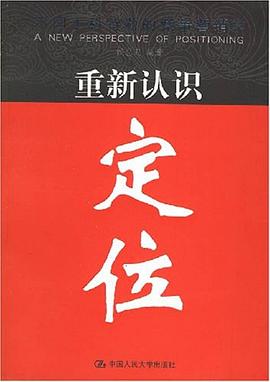

具体描述
A revelatory examination of how the wildfirelike spread of new forms of social interaction enabled by technology is changing the way humans form groups and exist within them, with profound long-term economic and social effects-for good and for ill
A handful of kite hobbyists scattered around the world find each other online and collaborate on the most radical improvement in kite design in decades. A midwestern professor of Middle Eastern history starts a blog after 9/11 that becomes essential reading for journalists covering the Iraq war. Activists use the Internet and e-mail to bring offensive comments made by Trent Lott and Don Imus to a wide public and hound them from their positions. A few people find that a world-class online encyclopedia created entirely by volunteers and open for editing by anyone, a wiki, is not an impractical idea. Jihadi groups trade inspiration and instruction and showcase terrorist atrocities to the world, entirely online. A wide group of unrelated people swarms to a Web site about the theft of a cell phone and ultimately goads the New York City police to take action, leading to the culprit's arrest.
With accelerating velocity, our age's new technologies of social networking are evolving, and evolving us, into new groups doing new things in new ways, and old and new groups alike doing the old things better and more easily. You don't have to have a MySpace page to know that the times they are a changin'. Hierarchical structures that exist to manage the work of groups are seeing their raisons d'tre swiftly eroded by the rising technological tide. Business models are being destroyed, transformed, born at dizzying speeds, and the larger social impact is profound.
One of the culture's wisest observers of the transformational power of the new forms of tech-enabled social interaction is Clay Shirky, and Here Comes Everybody is his marvelous reckoning with the ramifications of all this on what we do and who we are. Like Lawrence Lessig on the effect of new technology on regimes of cultural creation, Shirky's assessment of the impact of new technology on the nature and use of groups is marvelously broad minded, lucid, and penetrating; it integrates the views of a number of other thinkers across a broad range of disciplines with his own pioneering work to provide a holistic framework for understanding the opportunities and the threats to the existing order that these new, spontaneous networks of social interaction represent. Wikinomics, yes, but also wikigovernment, wikiculture, wikievery imaginable interest group, including the far from savory. A revolution in social organization has commenced, and Clay Shirky is its brilliant chronicler.
作者简介
克莱·舍基,被誉为“互联网革命最伟大的思考者”、“新文化最敏锐的观察者”,从事有关互联网的社会和经济影响的写作、教学与咨询,特别关注社会网络和技术网络的交叉地带。目前在纽约大学的互动电信项目中任教,其咨询客户包括诺基亚、宝洁、BBC、美国海军和乐高公司等。多年来,在《纽约时报》、《华尔街日报》、《哈佛商业评论》、《连线》和《IEEE计算机》等报刊上发表文章,广受读者追捧,并经常在技术会议上充当主题演讲者。
目录信息
读后感
很多朋友都在问《人人时代》和《未来是湿的》的区别在哪里?虽然这是《未来是湿的》的修订版,但是做的工作依然不少。恢复了一些曾经避而不谈的话题,今天的读者应该已经准备好了去接受。曾经是引领互联时代潮流,如今是慢下脚步反思。 书名回归本源——人人时代 原书名为He...
评分胡泳老师的翻译 杂这么拗口的哦? 翻译至高标准时信达雅 这本书翻译还欠火候 这本书的内容,content marketing角度来说 是本好书 基于社会学 ,组织学在互联网中的一些 睿智观察 个人推荐阅读 其实互联网精神层面 战略层面的东西 是灵魂 大家不要一叶障目 埋头仅仅播自己的3分地
评分《未来是湿的》这本书的理论性较强,对于群体效应讲的令人很兴奋,似乎群体社会化是无所不能的,但最后又提到了群体的社会化困境,如果群体中不良行为不会受到惩罚,则会引发破窗效应,导致事情搞砸,这从另一方面似乎表明,缺乏某种形式管制,任何创造群体价值的努力都不能成功。
评分一本是《未来是湿的》、另一本是《新数字秩序的革命》。 我是先看的后一本,是关于分类和排序的一本书。当年读算法和结构的时候就是这种东西,但没想过我们在用这个建构世界。后来想想人脑的记忆和思考模式就是把对象按不同的特点抽象化,那么我们一定是在不自觉的对世界进行...
用户评价
过时了…
评分:无
评分Clay Shirly是social media研究方面的权威和鼻祖了。今年3月读的他的Here Comes Everybody,直接导致了我专业的转向。
评分这个有趣多拉~
评分过时了…
相关图书
本站所有内容均为互联网搜索引擎提供的公开搜索信息,本站不存储任何数据与内容,任何内容与数据均与本站无关,如有需要请联系相关搜索引擎包括但不限于百度,google,bing,sogou 等
© 2025 book.quotespace.org All Rights Reserved. 小美书屋 版权所有




















